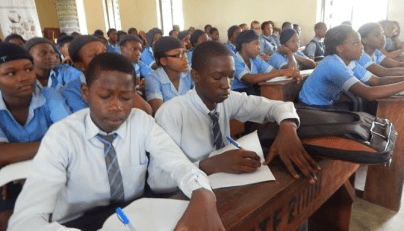AI Leader at Deloitte Analytics, Wessel Oosthuizen, has disclosed that while much of the public discourse surrounding artificial intelligence (AI) focuses on dire predictions about robots stealing jobs, a growing number of future-minded business leaders are embracing an altogether more optimistic and empowering narrative.
Oosthuizen made this known in a press release published by Deloitte – a leading global provider of audit and assurance, consulting, financial advisory, risk advisory, tax and related services – titled: “How Businesses Can Unleash The Power Of Human-Machine Collaboration” on Friday.
According to him, ‘visionary leaders realise our future is not about people versus machines at all, but about how human collaboration and decision-making can be enhanced through the use of machines and AI’.
He further made reference to research by Gartner, which predicted that AI, far from “stealing” jobs, would be a net creator of jobs by 2020 and that human-machine collaboration would be at the centre of this trend.
Here him: “At Deloitte we’ve coined a term for this – the ‘Age of With’. Far from being a futurist’s fantasy, says Oosthuizen, the Age of With is already firmly entrenched in workplaces in the form of shared data, social engagement, digital assistants, cloud platforms, connected devices. “What they have in common is human collaboration made greater with the machines we invent.”
He added that even leaders who understand the potential of ‘With’ in the context of human-machine cooperation often struggle to identify the specific technologies relevant to their organisations and come up with strategies to implement them.
He continues: “It’s clear from our research on Analytics and AI-driven enterprises that organisations want to lead with advanced analytics, and the adoption of technology like machine learning. However, this willingness is not always matched with the ability to turn insights into action. Data science has to permeate company culture starting from the top to see true benefits.”
In Oosthuizen’s opinion, the project is about building an insights-driven organisation (IDO), stressing that as companies continue to incorporate data in their operations, they must make analytics a priority for all employees to exceed business goals.
Consequently, to create an IDO, he opined that leaders should integrate culture, technology and talent as itemised below to gain a competitive advantage:
Culture: Companies should instil responsibility for analytics across the organisation, regardless of job title or level, and enlist an executive sponsor, ideally the CEO, to spur change in mindset across management. In addition, to motivate employees to incorporate insights into everyday tasks, consider tying individual performance goals to meaningful use of analytics. This can be also be reinforced by executives who encourage trying and risk-taking—even if failure occurs—and reward a “fail forward” mindset within the domain.
Technology: Expand tools to help incorporate both structured and unstructured data, deliver more insights faster and implement a single data and analytics solution that can be used across the organisation is imperative in the fast changing world of technology. Exponential technology is changing rapidly and staying at the forefront of the latest advancements and changes can be daunting but the advancements has also enabled companies to take a modular approach and get access to technology that was previously only within reach of organisations with large technology/IT budgets.
Talent: Eliminate the idea that only highly skilled mathematicians or data scientists are the only ones responsible for business analytics. Spread accountability broadly and train all employees about the role of analytics in their respective jobs. In companies where all personnel have been educated about how to leverage data, 88 percent exceeded business goals, compared to just 61 percent of those with few trained employees.
“All signs indicate that large organisations need to focus on using data more effectively to continue to grow and be positioned for success. However, most are hindered by their culture. Business leaders who deploy the responsibility of analytics more broadly and invest in an insight-driven culture will be poised to outperform their counterparts as well as be better prepared for the Age of With,” says Oosthuizen.
To help clients with this process, Deloitte created its aiStudio, an incubator for the development of state-of-the-art solutions in the field of Artificial Intelligence. Founded in 2018, the aiStudio unites top talent from around the globe, including South Africa, on a mission to solve today’s business challenges through clever application of AI technologies.
“It was carefully designed to capitalise on Deloitte’s strengths – and to combine them with the bold vision and scrappy tenacity of a start-up. Innovation thrives in this international, collaborative and agile environment,” says Oosthuizen.
Deloitte Africa has its own hub, The Deloitte Cognitive Advantage team, a team that is not only part but a founding member of this Global incubator. The team has seen exponential growth over the last 12 months and is dedicated to helping clients harness the power of “With”.
“In the Age of With, harnessing the power of AI in fields as diverse as financial services, retail, mining, healthcare, governments and others can create synergies and improved workforces which can add immense value to business. Artificial Intelligence is here, and it’s ready to get to work.”

 News6 years ago
News6 years ago
 Featured6 years ago
Featured6 years ago
 Boss Picks6 years ago
Boss Picks6 years ago
 Headline6 years ago
Headline6 years ago
 Headline6 years ago
Headline6 years ago
 Headline5 years ago
Headline5 years ago
 Headline6 years ago
Headline6 years ago
 Headline6 years ago
Headline6 years ago













